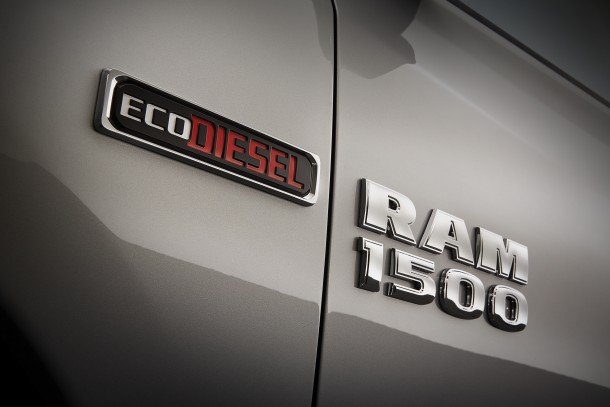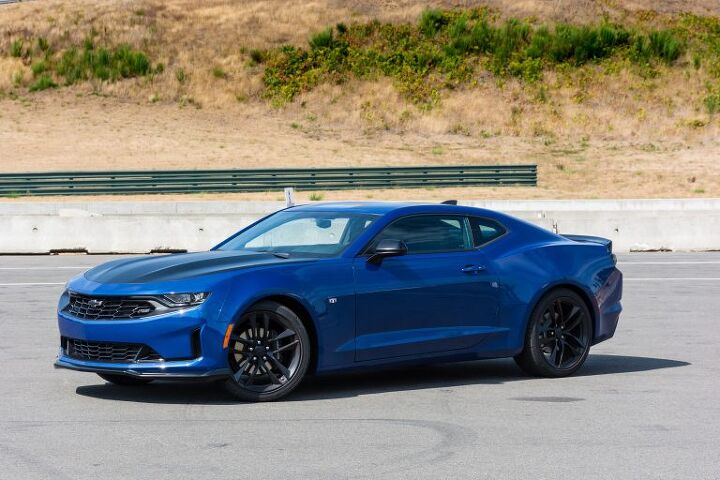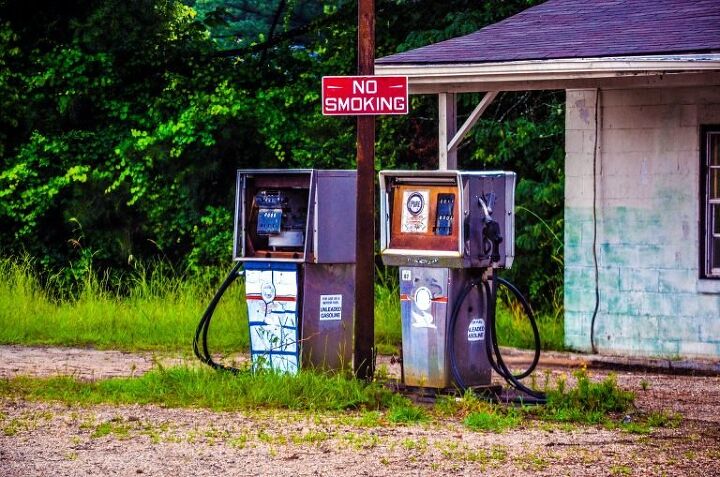#Emissions
EPA: Automakers Too Reliant on Credits for Emissions Compliance
The Environmental Protection Agency released its annual assessment of new vehicles yesterday, and it was filled with good news. On average, fuel economy continues to improve. Cars are not getting heavier, horsepower keeps going up, and every major manufacturer managed was in compliance with greenhouse gas standards through the 2017 model year. However, the EPA also said it’s concerned that manufacturers frequently tap into stored-up regulatory credits to make this possible.
“Most large manufacturers used banked credits, along with technology improvements, to maintain compliance in model year 2017. Three large manufacturers achieved compliance based on the emission performance of their vehicles, without utilizing additional banked credits,” the agency explained.
The ability to bank credits by over-complying in a given year is seen by some environmental groups as a way for corporations to shirk their responsibility to the planet. But EPA Administrator Andrew Wheeler’s concerns regarding the system rest elsewhere.
White House to Automakers: Choose a Side in the Great Gas War
The Trump administration has long been at odds with California and a coalition of supportive states that hope to block the rollback of Obama-era fueling regulations the current Environmental Protection Agency deems “unsustainable.” The EPA also says it’s inconsistent with consumer behavior. But automakers have behaved somewhat erratically on the matter, forcing the president to request (by proxy) that they make up their minds and pick a side before a final decision is made.
While industry leaders previously backed the more stringent regulatory framework set in place by the former president, they quickly converged on Washington after Trump assumed office in 2017, requesting a softening of Corporate Average Fuel Economy standards. After blowback from California and environmental activists, automakers took a more measured approach, publicly stating that they support green initiatives and reducing their own carbon footprint — and suggesting that a national deal be reached that pleases all parties.
Fence-sitting time might be over.
Ford Opens Investigation Into Fuel Economy Testing Procedure, Hires Outside Help
Ford Motor Company has reason to believe a problem may exist in how the company calculates vehicle fuel economy and emissions.
The automaker has hired an outside firm to help get to the bottom of the issue, which was raised by employees, and has already notified the Environmental Protection Agency and California Air Resources Board of the probe, Ford claims. It insists this isn’t about sneaky defeat devices; rather, road load is the issue here.
Fiat Chrysler Nears Settlement Over Dirty Diesel Allegations
Fiat Chrysler Automobiles is on the cusp of reaching a settlement with the U.S. Justice Department over undeclared emissions control software that allowed 104,000 diesel vehicles to pollute beyond legal limits.
The settlement is expected to include significant civil penalties and fines to account for the excess diesel emissions while also covering claims from the Justice Department, various U.S. states, and vehicle owners — similar to Volkswagen’s “Dieselgate” settlement. A final agreement could be reached any day now.
QOTD: Minding Your Mileage?
Without getting deep into the emotional weeds of a contentious scientific debate, one which many would argue we’re not even allowed to have, let’s instead speak in broader terms. Emissions are bad. Always were. They’ll get you in trouble with the EPA and force you to promise fleets of electric cars while funding ads featuring your competitors. They blanket China in orange gloom to this day and once nearly suffocated an entire Pennsylvania town.
The true harmfulness of these emissions, of course, depends on your own personal views — even more so these days. In the past two decades, possibly because of progress on the pollution front, the climate-altering ingredients of emissions (methane, carbon dioxide) quickly superseded the direct health impacts of airborne pollutants like nitrogen oxide, hydrogen fluoride, and sulfur dioxide in the minds of many North American citizens and policymakers. Smog? You can see that. Was that tornado or flood a natural occurrence or did it have “help”? That’s less tangible, more opaque. Easy to ignore.
Still, the effect of this switch in green priorities on discourse surrounding the automobile (and ownership thereof) remains the same. We’re often asked to choose sides.
GM: Current Fuel Economy Rules 'Not Technologically Feasible'
General Motors appeared to endorse the Trump administration’s fuel economy rollback, at least to some degree. In a federal filing made public on Monday, the largest U.S. automaker said Obama-era rules that targeted fleetwide fuel efficiency in excess of 50 miles per gallon by 2025 were “not technologically feasible or economically practicable.”
Interesting, considering GM CEO Mary Barra recently called for for the adoption of a national zero-emission vehicle strategy. However, the document also had GM saying it was “troubled” that the current administration appears so keen to abandon federal incentives on electric vehicles after the 2021 model year.
California Preps Formal Response in Gas War, Calls MPG Rollback 'Unlawful'
California and 18 other states plan to formally vent their grievances over the Trump administration’s proposal to freeze fuel economy standards at 2020 levels on Friday. The Environmental Protection Agency (EPA) and National Highway Traffic Safety Administration (NHTSA) have called for public comments on the matter, with the deadline taking place at the end of this week. Apparently, California wants its voice to be the last one heard.
“They are grossly derelict in not trying to move the dial forward in cleaning the air and the environment,” California’s attorney general Xavier Becerra said in a conference call with reporters on Wednesday. “The situation continues to get worse and requires action now, and not for us to stand pat.”
Forget Diesel - Tough Times Now Lie Ahead for the European Plug-in Crowd
The European new car market is in a period of extreme flux. Once-dominant diesels are on the way out thanks to new regulations, looming bans, and cancelled tax incentives, with electrified vehicles poised to take over the high-MPG role.
But not everything’s rosy in the clean, green market on the other side of the Atlantic. A new, more accurate way of measuring fuel economy went into effect last month, and governments — as well as automakers — suddenly realized certain vehicles weren’t as clean as initially thought. Looking to buy a plug-in hybrid in the UK? Say goodbye to that juicy government incentive.
European Union May Not Be Unified On Emission Regulations After All
With California and the Trump administration squabbling over vehicle emissions, it’s easy to assume that Europe’s green initiatives are progressing trouble free. In truth, things are a little more complicated. Europe has come together to endorse tougher emissions rules but one of its member states appears to be reaching its breaking point. Unsurprisingly, it’s the one that builds the most automobiles.
Earlier in the week, EU environment ministers announced a need for countries to decide on reduction targets for the foreseeable future. Germany has endorsed a proposed target for a 30-percent reduction by 2030, compared to 2021 levels. However, France and several other nations are pushing for a stricter 40-percent limit while Austria wants to see 35-percent reductions. Although, the most interesting thing about this is how closely Deutschland’s arguments for softer standards are to America’s.
California Prepares Counteroffensive in Great American Gas War, Asks Automakers For Ammo
California is considering a formal, public counter-proposal to the Trump administration’s proposed rollback of the existing fuel economy requirements for passenger vehicles. Gearing up for the launch, the state has requested that automakers present detailed information on their future products and explain why they’re seeking relief from fueling mandates they previously agreed to adhere to.
“They’ve never submitted to us any information that would back up those claims in any detail to help us craft a solution,” Mary Nichols, chair of the California Air Resources Board, (CARB), said in a Thursday interview with Bloomberg.
California Vows to Work Toward National Emissions Standard (While Voting to Keep Its Own)
California regulators voted on Friday to mandate an adherence to Obama-era federal vehicle emissions standards for cars sold in the state, regardless of Trump administration efforts to weaken the standards. It’s the latest salvo in a war between the Golden State and the current administration, which aims to strip California of its ability to self regulate its automotive emission rules and roll back the corporate average fuel economy for the entire country.
However, the Trump team doesn’t appear to be completely ignoring the environment. In a 500-page environmental impact statement from the NHTSA on the Safer Affordable Fuel-Efficient (SAFE) Vehicles Rule for Model Year 2021–2026, numerous inclusions acknowledge the existence of climate change. But the takeaway from the report is that the NHTSA doesn’t seem to feel that passenger vehicles will make much of a difference.
Porsche is Officially Ditching Diesel
Porsche will quit offering diesel powertrains for its cars and light trucks, effectively adding another nail to the fuel’s coffin. Following Volkswagen Group’s emission’s fiasco in the United States, which included Porsche, Europe has become increasingly critical of diesel-engined vehicles. Citywide bans have have been proposed throughout the region and, as of February, Porsche suspended diesel sales due to an ongoing German probe into VW Group’s diesel engines.
That investigation found that the Cayenne EU5 model’s 8-cylinder diesel was in violation of the established rules, affecting 13,500 units, according to Bild am Sonntag. Porsche then recalled nearly 60,000 Cayenne and Macan diesels in May as it launched its own investigation.
“Porsche is not demonizing diesel. It is, and will remain, an important propulsion technology,” Porsche Chief Executive Oliver Blume said in a statement. “We as a sports car manufacturer, however, for whom diesel has always played a secondary role, have come to the conclusion that we would like our future to be diesel-free.”
White House and California Still Discussing Emission Rules, Incredibly
Considering that the Trump administration’s Safer and Affordable Fuel Efficient (SAFE) Vehicles proposal specifically calls for the revocation of California’s power to set its own emissions rules, it’s miraculous that the Golden State is still willing to discuss the issue. But here we are.
Administration officials and members of the California Air Resources Board (CARB) emerged from a meeting on Wednesday, saying they were working toward resolving their differences over vehicle emissions, interested in establishing a single national standard, and — get this — would be happy to meet again.
Fueling the Opposition: EPA Staff Had Serious Reservations About CAFE Rollback Proposal
Staff at the Environmental Protection Agency had major disagreements over the decision to rollback corporate average fuel economy (CAFE) standards for the coming years, according to documents released last week. The matter echoes an event in May where science advisers for the EPA claimed the agency had ignored its own research in order to rationalize the push to relax fuel targets.
Both items have given ammunition to critics of the new proposal to claim the choice was politically motivated and based upon shoddy, biased research. Interesting, considering that’s exactly what the current administration said about the earlier decision to make them more stringent.
Led by the National Highway Traffic Safety Administration and backed by EPA, the current proposal seeks to keep fuel economy standards at 2020 levels — rather than continuing to elevate them. The arguments made for the move revolved around existing consumer preferences and saving lives. However, some of the agency’s staff seemed to be concerned with the NHTSA’s data and claimed it had overstepped by including the EPA in documents it didn’t approve of.
Germany Tells Owners of Cheating Volkswagen Diesels to Get Their Cars Neutered or Hand Over the Registration
Germany’s federal motor transport authority, die Kraftfahrt-Bundesamt (KBA), told dieselgate holdouts that haven’t yet fixed their emissions-cheating cars to get them repaired or prepare to have their registration revoked. In fact, officials in Hamburg and Munich have already taken several Audi and VW vehicles off the road.
It’s no wonder there’s cold feet among the citizenry. Reports out of Germany last year revealed that engines returned from the fixes behaving like a person suffering from an incredibly traumatic experience. They just weren’t the same anymore. Some units saw up to a 10-percent decrease in performance and likely ended up with a less-beefy torque curve biased toward higher engine speeds. Fearing that the Volkswagen Group’s “emissions repair” could effectively neuter their car, those abstaining from the recall are now left with no recourse.






























Recent Comments